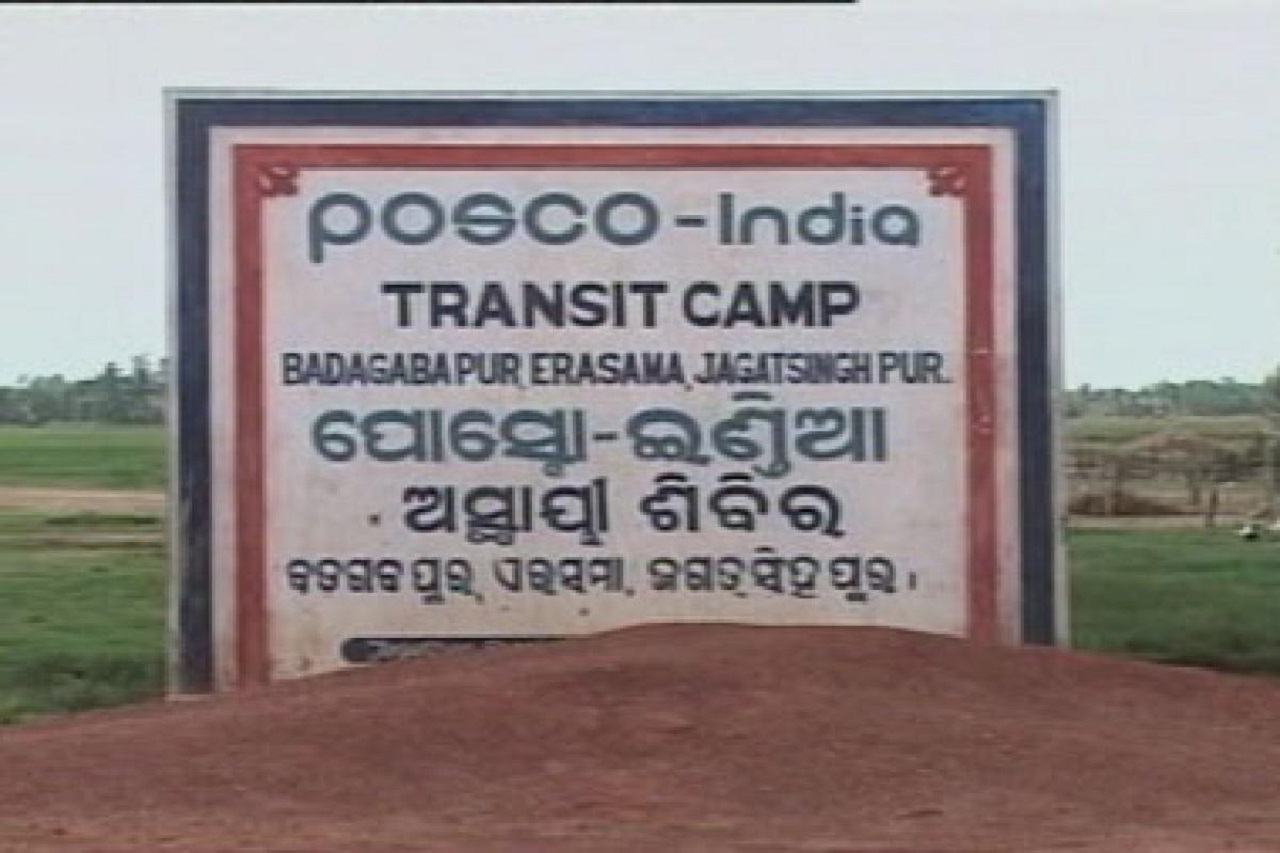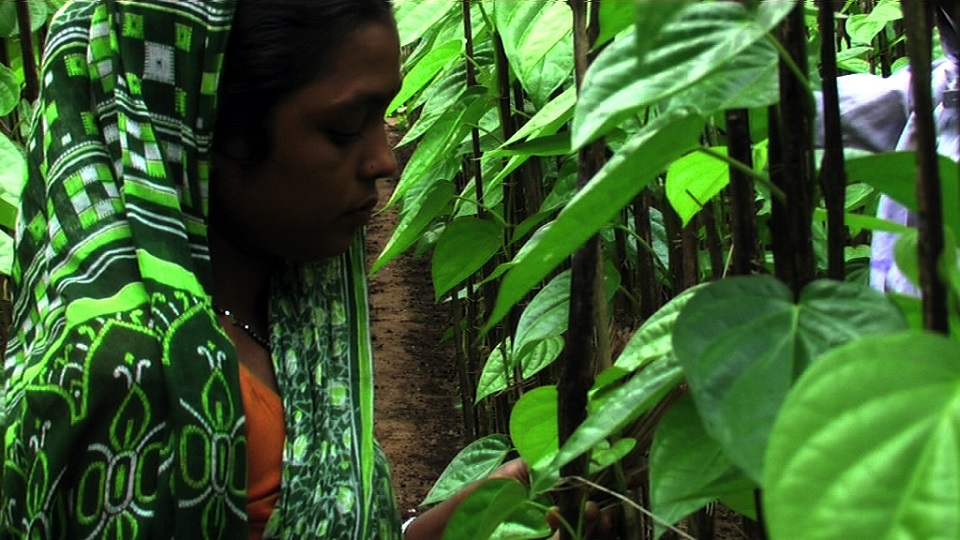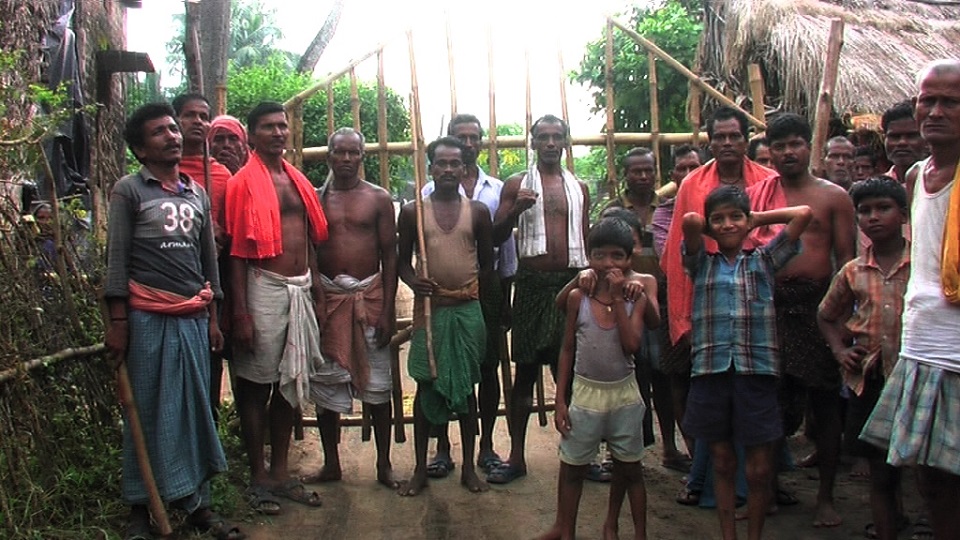The Odisha Government has refused to return the illegally acquired land on POSCO’s exit and announced other companies would be able set up projects on the same land. A year after POSCO’s exit, JSW Steel would be setting up a huge steel plant at the same site. The people of Dhinkia Charidesh are prepared to face the onslaught of the mining mafia all over again and defeat the steel behemoth one more time, writes Surya Shankar Dash.
In the two decades old regime of Orissa Chief Minister Naveen Pattnaik, if there is one thing that stands out, it is the unprecedented violence against adivasi people to grab their land, forest and water and hand them over to the Corporates. All other states in India would fall pale in comparison. But Pattnaik continues to have a popular image across the country as a secular and benign statesman. From the very first year of his tenure as Chief Minister, there have been massacres, assassinations, incarceration and torture of adivasi leaders, activists and citizens, that amount to genocide, replete with segregated schools, stolen generations, human zoos, and all other markers of a supremacist force wiping out almost an entire community of people.
Three years ago, the proposed Khandadhaar mining, and the integrated project of a 12 MTPA (million tonnes per annum) steel plant, thermal power plant and a captive port at Jatadhara creek in Odisha’s Jagatsingpur district were abandoned by the South Korean steel company POSCO, after more than a decade of sustained protests by the Dalit Bahujan farmers and fishing communities of Jagatsingpur.
While some cite the real reason for POSCO’s exit to be because of an amendment in the Mines and Minerals Development and Regulation Act in January, 2015, that made it mandatory for the company to avail of mines through auctions, which meant POSCO wouldn’t be handed over the iron ore on a platter, the people’s movement against the project did not allow an inch of land to be acquired till 2013, when Odisha Government used brute force to destroy 3 lakh trees, numerous betel vineyards and claimed, it had successfully acquired land, but the National Green Tribunal stalled the deforestation and the land grab.
The site is an ecologically fragile coastal forest and estuary that sustains the agricultural and fishing communities of the villages Gadakujang, Dhinkia, Nuagaa, Patana, Nolia Sahi, Polanga and others, whose lives will be destroyed by the project. At least one third of the population in the project-affected area belongs to the Scheduled Castes, who are mostly landless or with very small land holdings, who rely entirely upon the forest and the Jatadhara River for their livelihood. The Jatadhara creek is known for its abundant availability of crabs, prawns and fish that fetch the fishing community a sizeable income.
The people’s movement against the POSCO project, organized under the aegis of Posco Pratirod Sangram Samiti and backed by Left parties like the CPI, had women, senior citizens and children at the forefront. The villages put up barricades around the sylvan landscape and barred Government and POSCO officials from entering the area. On the other hand, the mafia and the police attacked the peaceful protestors several times leading to the murder of Dula Mandal in 2008, and Narahari Sahu, Nabanu Mandal, and Manas Jena in 2013. Several women, senior citizens and children were also grievously injured in the several incidents of police and mafia attacks upon the people.
Clearly, the Odisha Government has not learnt its lesson, refused to return the illegally acquired land on POSCO’s exit and announced that other companies would be able set up projects on the same land, in a clear violation of the 2013 Land Acquisition Act. The people of Jagatsinpur’s Dhinkia Charidesa comprising of the villages of Dhinkia, Patana, Gobindpur, Nolia Sahi, Gada Kujang, Nuagaa and Polanga were not allowed to live in peace after a hard fought battle, with the Odisha Government announcing a year after POSCO’s exit that JSW Steel would be setting up a project at the same site.
The proposed project comprises of an integrated 13.2 MTPA steel plant, a 10 MTPA cement grinding unit, a 900 MW captive power plant, an all weather, multi cargo, green field, captive jetties with a handling capacity of 52 MTPA at Jatadhari creek, and a township spread over 22,1500 sq km. In short, it is much larger than the POSCO project and will produce as much as the combined output of six major steel plants like Bhilai, Bokaro, Durgapur, Rourkela, Burnpur and Salem put together. The project’s water requirements will be met by an 87 km long pipeline from Jobra barrage on Mahanadi river to the plant, despite the rising evidence that the river is highly water stressed.
The factories are going to destroy 2645 acre community protected forest, the jetty will devastate the Jatadhara creek and estuary, and the township is going to be built over fertile paddy fields. Within 2 km of the proposed site, is a mangrove that protects the fragile coastline and it will be adversely affected by the JSW Utkal project. The effluent discharge will be pumped into the sea and will make it uninhabitable for aquatic life. The project spells out disaster in big bold letters and it is most alarming as the extreme cyclonic weather of Odisha post 1999 is said to be directly linked to coastal deforestation and industrialization. The Jatadhara estuary is a habitat for rare aquatic and semi aquatic flora and fauna that will face extinction if the project materializes.
The Paradip industrial area that stretches out from the Paradip Port to Dhinkia is ranked amongst the most critically polluted regions of India. Apart from the port where coal and metal ore transportation causes massive dust pollution as well as regular oil spills, the region has the Essar Steel Plant, the Goa Petrochemical Factory, the PPL Fertilizer plant, a distillery, the HPCL Oil Terminal, the Indian Oil Refinery & Petrochemicals Complex, etc. that has created a hazardous environment. To add more industrial pressure upon the eco-system is extremely alarming and dangerous. Moreover, two pipeline projects from ONGC and Indian Oil are also proposed to be constructed in this area.
The communities, living close to the proposed site for the JSW Utkal project, have serious concerns over the potential ill effects like cancer, respiratory disorders and other diseases caused by such industries. The Jatadhara port will bring in added hazards of accidental oil spills.
The forest that is being proposed to be axed for the JSW Utkal project has a critical role to play in the prevention of soil erosion that has turned out to be a burgeoning problem in coastal Odisha with many villages having to be moved several kilometers inland for safety from the advancing sea. The forest also protects the sweet ground water that experts have found to be of excellent quality despite the saline coastal environment. The forest provides ideal conditions for betel vineyards that also help in protecting the soil. From ancient times the region has been known for paddy, betel vine, coconut, cashew, vegetable cultivation and extensive fishing, finding mention even in the travelogues of the Chinese and the Greek.
The people of the region have a unique collective identity, a traditional way of life and culture evident in the fact that they refer to their land as Dhinkia Chari Desh i.e. the four Nations of Dhinkia. The history of the land goes back to the Ashoka era with legend stating that Gada Kujang was the birthplace of Queen Karubaki who fought Ashoka and later ruled Bharata alongside him. Ancient shrines and temples of indigenous deities dot the region like Nolia Sahi’s Maa Ganga Debi temple, the Grama Debi Paduaneee temple of Patana, the Bata Thakurani of Gobindpur that will be completely destroyed by the project.
On 20 December, 2019, the Odisha Pollution Control Board organized the Public Hearing in Gada Kujang for JSW Utkal project, but it was boycotted by the majority of the people for various reasons. The foremost reason being, that several villagers have numerous false cases filed against them during the agitation against POSCO. The district administration and the police had already made it apparent that anyone opposing the project would be targeted and persecuted. The fact that District Collector, Sangram Mahapatra, is the same bureaucrat who had personally assaulted children and women during the illegal deforestation in 2013, when he was the Land Acquisition officer, made it clear that the bureaucrat-mining mafia nexus was going to play foul. Moreover, the JSW Utkal CEO is none other than the former Collector of Jagatsingpur district who had orchestrated the illegal deforestation and eviction in 2013.
Many eyewitnesses at the Public Hearing reported that people from unaffected areas were brought in buses by the members of ruling party and JSW. These people were given the undue advantage of registering their names first which led to the affected peoples’ names being at the end of the list, thus not many of them got a chance to speak. A lavish feast was held for these people near the Public Hearing venue in order to influence them. Also ahead of the hearing, members of the ruling party and company officials distributed money among the villagers to influence them.
“The Public Hearing was illegal on many grounds. The government has not ensured that the community was given full project information in local language and in oral form that was accessible, transparent and objective, so that our community was able to assess the potential impact of the proposal on our way of life. The proposed project site is a traditionally community protected coastal forest estuary that has great historical, cultural, religious, economic and environmental value for the people of the region as well as the rest of Odisha” said activist and poet Suajata Sahani of Gobdindpur village, who was one of the few to attend the public hearing to register their protest. The Collector tried to interrupt her several times while she spoke of the several problems the Project will bring to the area.
Activists state that prior to the public hearing, the EIA (Environment Impact Assessment) report was not made available to the communities in local languages thus violating the provisions under the EIA Notification.
“No Gram Sabha has been held to discuss the project and the consent of the communities has not been taken. The manner in which the Public Hearing was conducted is unfair, biased and manipulated. Five projects are being presented as two to deliberately mislead the people. The township to be constructed for the project over an area of 22,15,000 sq. km has not been disclosed as part of the public hearing. This township is a building and construction project and requires a separate approval from the Odisha State Impact Assessment Authority. The Integrated Environment Impact Assessment (IEIA) and Cumulative impact have not been done. It is ironic that the 600 page EIA report spends considerable time explaining the importance of the steel industry and justifies why the project proposed by M/s JSW Utkal will be beneficial to the state of Odisha, however completely misses on reporting the impact on water and the township” said activist Debendra Swain of Dhinkia village.
The project is going to be fed with iron ore from JSW Steel’s recently bagged mines in Keonjhar district of Odisha, the Nuagan and Nayaposhi mines. The auctioning process itself had to be called off at least once for aggressive bidding by JSW that employed five to six other subsidiaries to bid independently. The mines are already operational ones and have devastated the ecology of the region immensely. Frequent deaths of Adivasi citizens in the region from the widespread air and water pollution have been going on unchecked for a long time, but the Odisha Government remains loyal to its mining mafia bosses in giving them a freehand to carry on with the plunder of nature.
Villagers have already submitted several petitions to the Odisha Pollution Control Board and Ministry of Environment & Forest opposing the JSW Utkal project, demanding the Public Hearing to be declared null and void for the several irregularities and illegalities and that the project should not be granted green clearance. On 25 February, 2020, the people from the affected area have called for a Gram Sabha to pass a resolution opposing the project. The people of Dhinkia Charidesh are prepared to face the onslaught of the mining mafia all over again and defeat the steel behemoth one more time.
Surya Shankar is a filmmaker-activist from Odisha.





4people died in posco govt signed with jsw to kill 400people. So our request to cancel jsw project